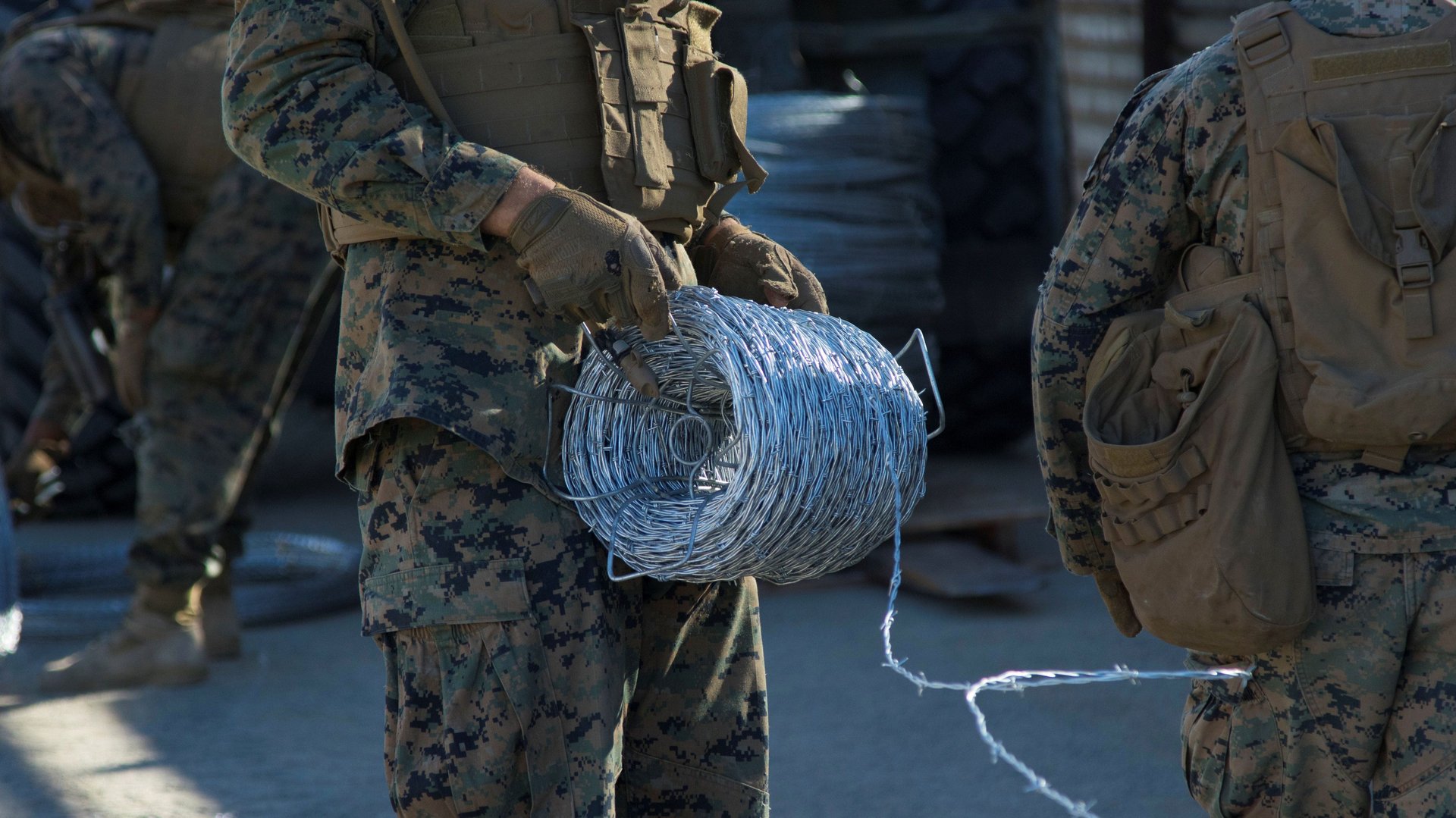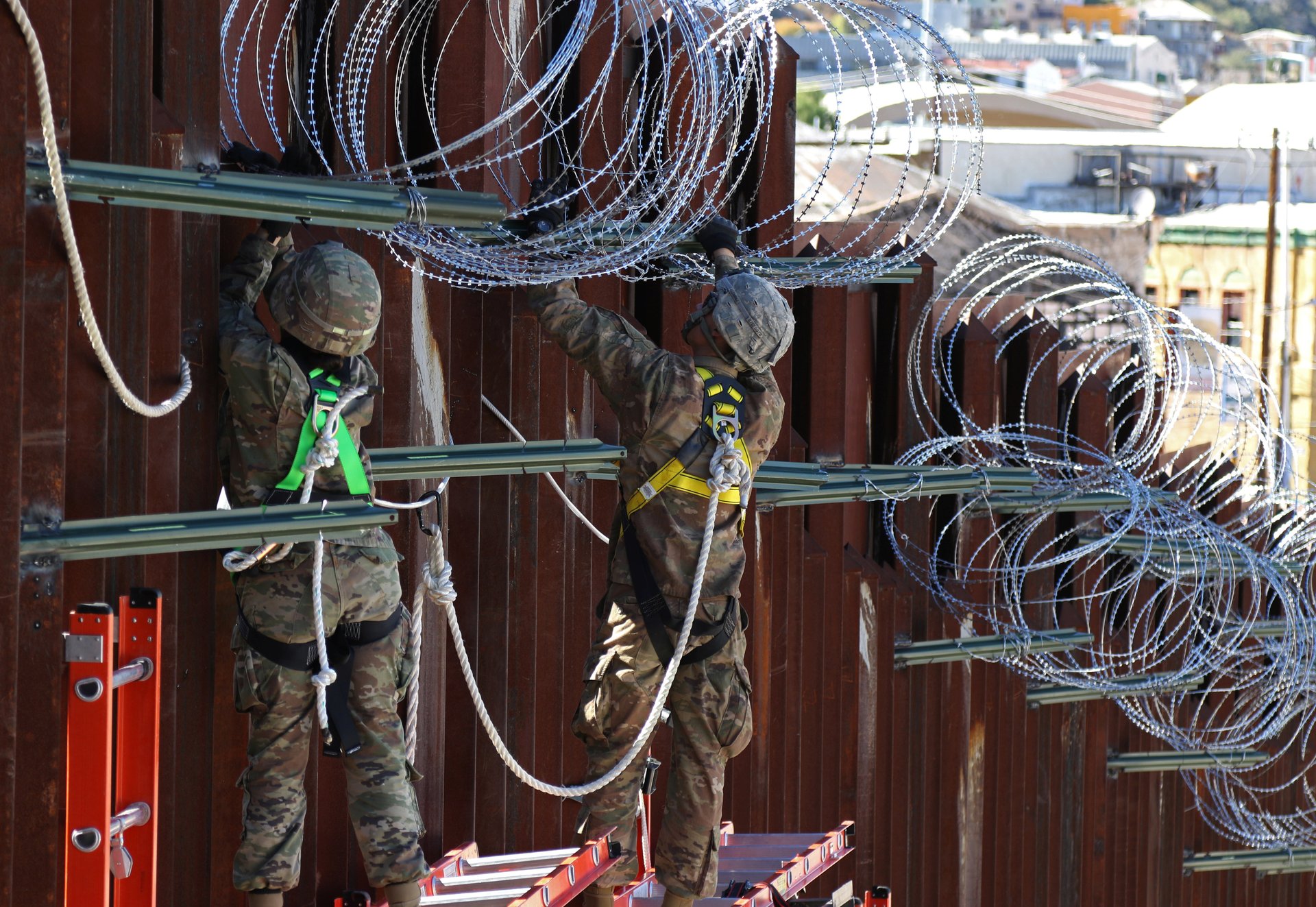The US border situation isn’t a national emergency, Pentagon officials tell Congress
Congress members tasked with overseeing the US’s massive military grilled Pentagon officials today (Jan. 29) on one of Donald Trump most controversial orders—sending troops to the border with Mexico to handle a caravan of Central American immigrants.


Congress members tasked with overseeing the US’s massive military grilled Pentagon officials today (Jan. 29) on one of Donald Trump most controversial orders—sending troops to the border with Mexico to handle a caravan of Central American immigrants.
The bipartisan House Armed Services Committee, which includes many of Congress’s military veterans and oversees a $700 billion annual defense budget, probed the cost of the order and its impact on other military operations during a three-hour hearing. The event raised questions about Trump’s motivations for declaring a “national emergency” on the border, which he threatened to do if he’s not happy with the outcome of ongoing talks on border security.
A Congressional committee is currently negotiating a border security budget, a condition under a deal struck by Trump and Democrats last week to temporarily reopen the US government. Until then, the president had refused to sign a spending bill that didn’t contain funding for a border wall.
Trump’s wall plans have been criticized in part because the number of people being apprehended at the Southern border is at historical lows, and most of the drugs coming from the south travel through ports of entry, not the areas where a wall would be constructed. Today, Pentagon officials indicated that they don’t consider the situation at the border a threat to US security.
For example, they said US troops there aren’t operating on an emergency footing. ”Given the threat description that surrounded this order,” are the service members on the border getting the extra bonus that active duty troops receive when they’re deployed to an area near hostile fire or mine explosions, asked Joe Courtney, a Connecticut Democrat. “No, sir,” responded vice admiral Michael Gilday, operations director for the Joint Staff, the senior Pentagon council that advises the White House.
Paul Mitchell, a Michigan Republican, asked what the military is doing at the border that couldn’t be handled by the Department of Homeland Security, if they had the funding for it.
Nothing, was the short answer. “None of the capabilities that we are providing are combat capabilities,” Gilday said. “It’s not a war zone along the border.”
Does the 2018 “National Defense Strategy,” the Pentagon’s annual review that’s used to allocate resources based on security threats, contain the term “Southern border,” or the word “caravan?” asked Bill Keating, the Massachusetts Democrat. No, Pentagon officials said.
The Trump White House ordered the military to send over 5,000 active duty military to the US’s southern border last October, just before the midterm election, as a caravan of asylum-seekers wound their way on foot through Mexico. Dubbed “Operation Faithful Patriot,” the troops strung miles of concertina wire on fences on the Arizona and Texas border, even as many of the immigrants headed to a legal port of entry in California.

More than 2,000 troops are still on the US southern border, Pentagon officials said today, as well as over 2,000 National Guard troops. They’re providing security for CBP officials, operating surveillance cameras, and stringing more wire. Acting Defense Department secretary Patrick Shanahan told reporters today “several thousand” more troops were being dispatched “soon” following a DHS request.
The cost for the active duty troops could total over $130 million by the end of this month, Pentagon officials said, while the cost of National Guard troops there is estimated to be about $550 million through the 2019 fiscal year that ends in September.
The military is preparing in the event Trump does declare a national emergency, said John Rood, the Pentagon’s under secretary for Defense. ”We have done pre-planning to understand the law and the obligations,” the military may have, he said, but he refused to estimate what it might cost, or discuss any details. “We have not made any decisions,” he said.
Pentagon officials’ answers during the hearing suggest that they don’t believe an emergency declaration is warranted. When asked which of the military’s stated missions on the border is the most pressing, whether stopping human trafficking, the flow of illegal drugs, or border crossers, Gilday didn’t choose, but admitted that overall drug enforcement operations have not been at the top of the military’s list.
Globally, the Trump administration has prioritized China, Russia, North Korea, and Iran, he said, and the military has followed suit.
“We just can’t do it all,” Gilday added.